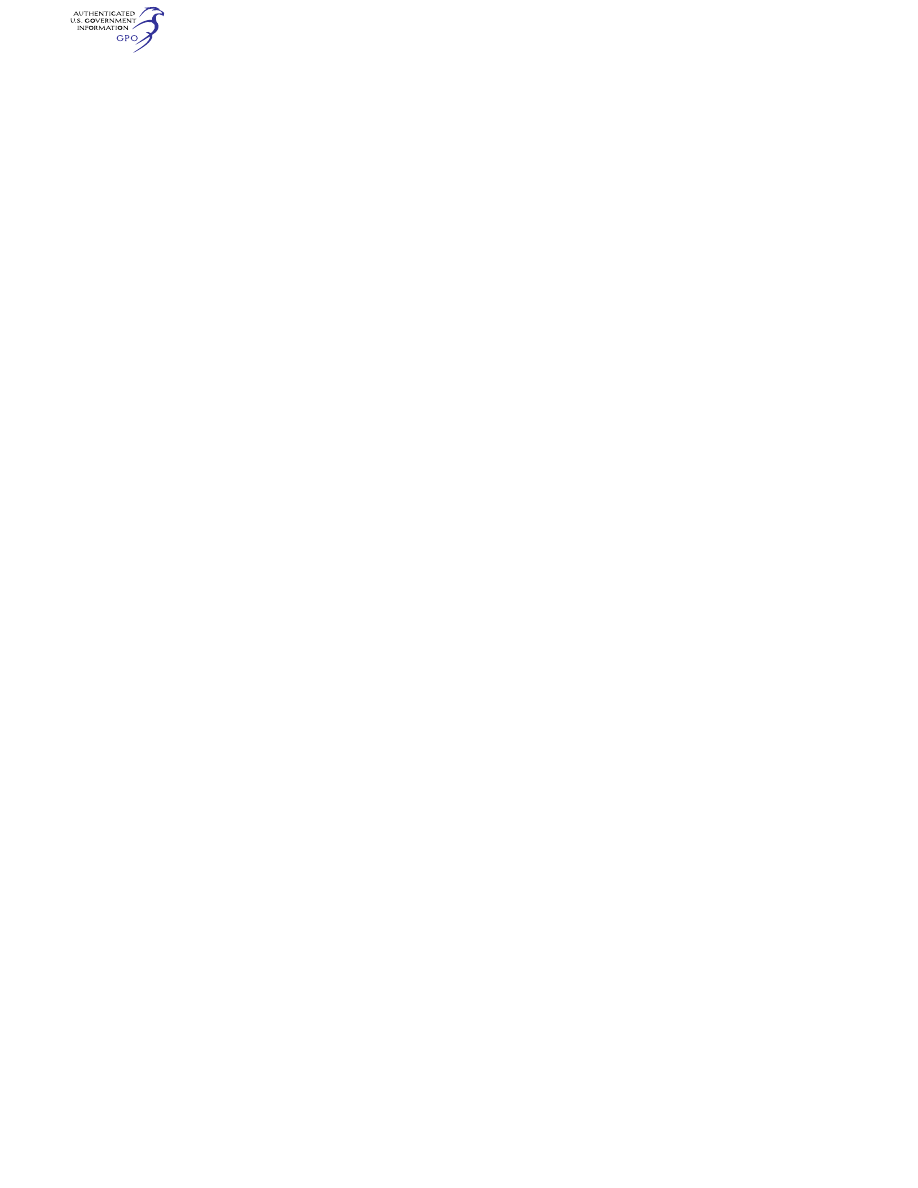
412
49 CFR Ch. I (10–1–23 Edition)
§ 172.330
(2) A person who offers a cargo tank
containing a hazardous material for
transportation shall affix the required
identification numbers on panels or
placards prior to or at the time the
cargo tank is offered for transpor-
tation.
(3) For a cargo tank transported on
or in a transport vehicle or freight con-
tainer, if the identification number
marking on the cargo tank required by
§ 172.302(a) would not normally be visi-
ble during transportation—
(i) The transport vehicle or freight
container must be marked as required
by § 172.332 on each side and each end
with the identification number speci-
fied for the material in the § 172.101
table; and
(ii) When the cargo tank is perma-
nently installed within an enclosed
cargo body of the transport vehicle or
freight container, the identification
number marking required by § 172.302(a)
need only be displayed on each side and
end of a cargo tank that is visible when
the cargo tank is accessed.
(b)
Required markings: Gases.
Except
for certain nurse tanks which must be
marked as specified in § 173.315(m) of
this subchapter, each cargo tank trans-
porting a Class 2 material subject to
this subchapter must be marked, in let-
tering no less than 50 mm (2.0 inches),
on each side and each end with—
(1) The proper shipping name speci-
fied for the gas in the § 172.101 table; or
(2) An appropriate common name for
the material (e.g., ‘‘Refrigerant Gas’’).
(c)
QT/NQT markings.
Each MC 330
and MC 331 cargo tank must be marked
near the specification plate, in letters
no less than 50 mm (2.0 inches) in
height, with—
(1) ‘‘QT’’, if the cargo tank is con-
structed of quenched and tempered
steel; or
(2) ‘‘NQT’’, if the cargo tank is con-
structed of other than quenched and
tempered steel.
(d) After October 3, 2005, each on-ve-
hicle manually-activated remote shut-
off device for closure of the internal
self-closing stop valve must be identi-
fied by marking ‘‘Emergency Shutoff’’
in letters at least 0.75 inches in height,
in a color that contrasts with its back-
ground, and located in an area imme-
diately adjacent to the means of clo-
sure.
(e)
NON-ODORIZED marking on cargo
tanks containing LPG.
No person may
offer for transportation or transport a
cargo tank containing unodorized liq-
uefied petroleum gas (LPG) as author-
ized in § 173.315(b)(1) of this subchapter
unless it is legibly marked NON-ODOR-
IZED or NOT ODORIZED on two oppos-
ing sides near the marked proper ship-
ping name as specified in paragraph
(b)(1) of this section, or near the plac-
ards. The NON-ODORIZED or NOT
ODORIZED marking may appear on a
cargo tank used for both unodorized
and odorized LPG.
[Amdt. 172–123, 55 FR 52592, Dec. 21, 1990, as
amended at 56 FR 66255, Dec. 20, 1991; Amdt.
172–151, 62 FR 1228, Jan. 8, 1997; 62 FR 39045,
July 22, 1997; 68 FR 19277, Apr. 18, 2003; 69 FR
64471, Nov. 4, 2004; 81 FR 35540, June 2, 2016]
§ 172.330
Tank cars and multi-unit
tank car tanks.
(a)
Shipping name and identification
number.
No person may offer for trans-
portation or transport a hazardous ma-
terial—
(1) In a tank car unless the following
conditions are met:
(i) The tank car must be marked on
each side and each end as required by
§ 172.302 with the identification number
specified for the material in the
§ 172.101 table; and
(ii) A tank car containing any of the
following materials must be marked on
each side with the key words of the
proper shipping name specified for the
material in the § 172.101 table, or with a
common name authorized for the mate-
rial in this subchapter (
e.g.,
‘‘Refrig-
erant Gas’’):
Acrolein, stabilized
Ammonia, anhydrous
Ammonia solutions (more than 50% ammo-
nia)
Bromine
or
Bromine solutions
Bromine chloride
Chloroprene, stabilized
Dispersant gas
or
Refrigerant gas (as defined
in § 173.115 of this subchapter)
Division 2.1 materials
Division 2.2 materials (in Class DOT 107 tank
cars only)
Division 2.3 materials
Formic acid
Hydrocyanic acid, aqueous solutions
Hydrofluoric acid, solution
